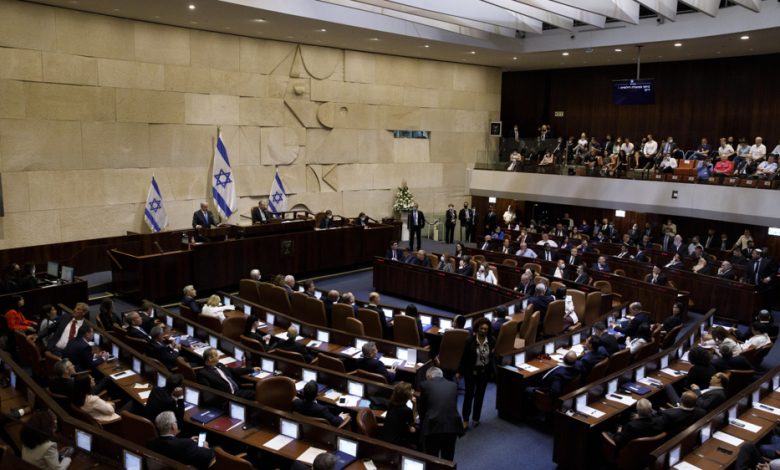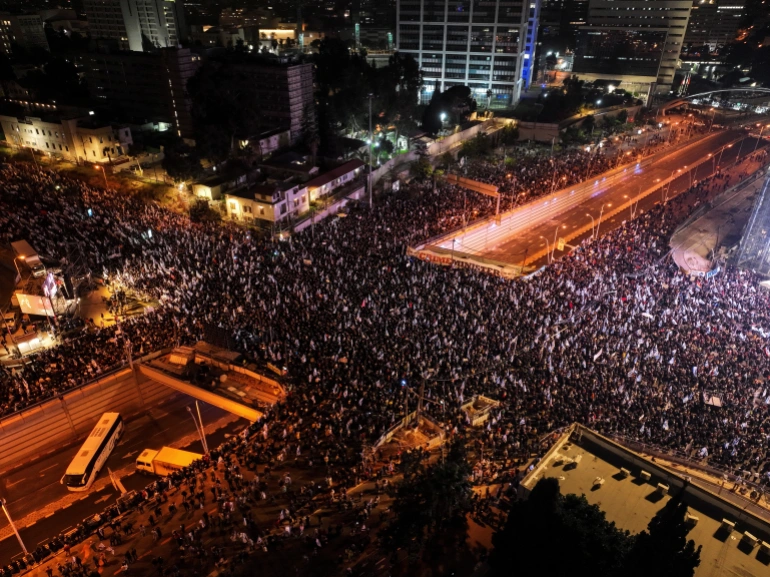Israel lawmakers press ahead with Netanyahu’s ‘legal reforms’ despite warnings
Israeli lawmakers have taken another step to press ahead with a controversial legal reform package that has over the past weeks triggered mass rallies against the embattled Prime Minister Benjamin Netanyahu’s extremist cabinet.

The Israeli parliament (Knesset) approved on Tuesday a bill in first reading that would allow the lawmakers to scrap the regime’s Supreme Court rulings with a simple majority vote.
The measure was adopted by a 61 to 52 vote but would still need to be approved in a committee and then in second and third plenum readings before becoming law.
The bill would allow Israeli parliamentarians to override Supreme Court decisions that strike down legislation with a majority of 61 of the 120-member Knesset, and then deny the court the right to review such a move.
It would also make it harder for the Supreme Court to strike down legislation it deems to contravene Basic Laws, Israel’s quasi constitution, by requiring the support of 12 out of 15 judges.
Israeli protesters and activists staged another sit-in outside ministerial buildings in the occupied al-Quds early on Tuesday, briefly blocking access to staff as anti-Netanyahu demonstrations have flared for 10 straight weeks.
Herzog warns of ‘serious’ situation
In a late Monday ceremony in Tel Aviv, Israeli President Isaac Herzog described the situation in the occupied territories as “very serious” amid the debate on the hardline cabinet’s move seeking judiciary overhaul.
Herzog said Israel was facing a “constitutional and social crisis” that could have “severe political, economic, social, and security consequences.” He added that he was devoting all his time and energy to finding a solution to the crisis that would help save the regime from further turmoil.
The Israeli president also warned that the situation was “very difficult and worrying,” stressing the urgent need for all parties to work together to resolve the issue.
The development comes as mass protests have taken place across the occupied territories over the past two months since Netanyahu’s controversial move to reform the judiciary.
Protesters argue that the legal changes threaten the independence of judges and weaken oversight of the ruling cabinet and parliament. They say the plan will undermine the rights of minorities and open the door to more corruption in the regime, which is already imploding from within.
They say the so-called “reform” is meant to help Netanyahu avoid repercussions of his ongoing corruption cases, including bribery, fraud, and breach of trust.
The embattled premier, however, claims the reforms are required to curtail the jurisdiction of the sitting judges, whom he accuses of having too much power.
The simmering anti-regime protests have prompted many political observers to predict the implosion of the apartheid regime from within, with even far-right Netanyahu loyalists seeing no escape route for him and his cabinet.





